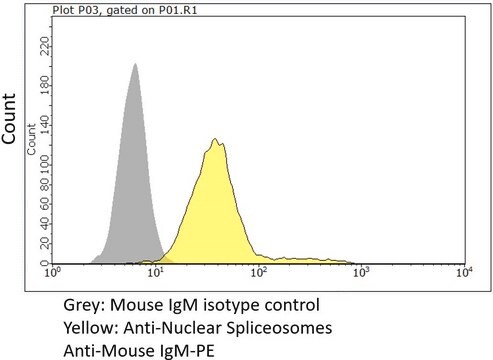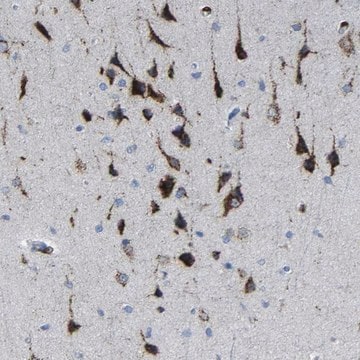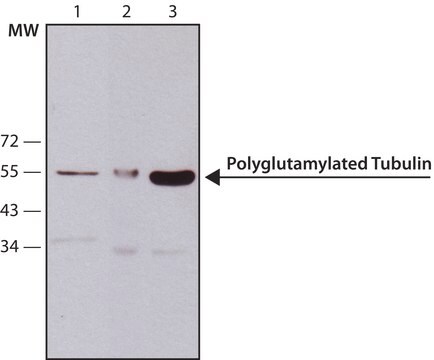ABE1387
Anti-Nuclear factor 1/C Antibody
serum, from rabbit
Synonym(s):
Nuclear factor 1 C-type, NF1-C, CCAAT-box-binding transcription factor, CCAAT-box-binding transcription factor, CTF, Nuclear factor I/C, NF-I/C, NFI-C, TGGCA-binding protein
About This Item
Recommended Products
biological source
rabbit
Quality Level
antibody form
serum
antibody product type
primary antibodies
clone
polyclonal
species reactivity
mouse, rat, human
technique(s)
ChIP: suitable
electrophoretic mobility shift assay: suitable
western blot: suitable
NCBI accession no.
UniProt accession no.
shipped in
wet ice
target post-translational modification
unmodified
Gene Information
human ... NFIC(4782)
General description
Specificity
Immunogen
Application
Electrophoretic Mobility Shift Assay (EMSA): A representative lot of this antibody has been reported to work in EMSA. See Johansson E.M., et al. (2003) and Kannius-Janson, M., et al. (2002).
Epigenetics & Nuclear Function
Transcription Factors
Quality
Western Blotting Analysis: A 1:1000 dilution of this antibody detected NFIC isoforms at ~45-55 kDa in a U251 cell lysate.
Target description
Physical form
Storage and Stability
Handling Recommendations: Upon receipt and prior to removing the cap, centrifuge the vial and gently mix the solution. Aliquot into microcentrifuge tubes and store at -20°C. Avoid repeated freeze/thaw cycles, which may damage IgG and affect product performance.
Other Notes
Disclaimer
Not finding the right product?
Try our Product Selector Tool.
Storage Class Code
10 - Combustible liquids
WGK
WGK 1
Certificates of Analysis (COA)
Search for Certificates of Analysis (COA) by entering the products Lot/Batch Number. Lot and Batch Numbers can be found on a product’s label following the words ‘Lot’ or ‘Batch’.
Already Own This Product?
Find documentation for the products that you have recently purchased in the Document Library.
Our team of scientists has experience in all areas of research including Life Science, Material Science, Chemical Synthesis, Chromatography, Analytical and many others.
Contact Technical Service







